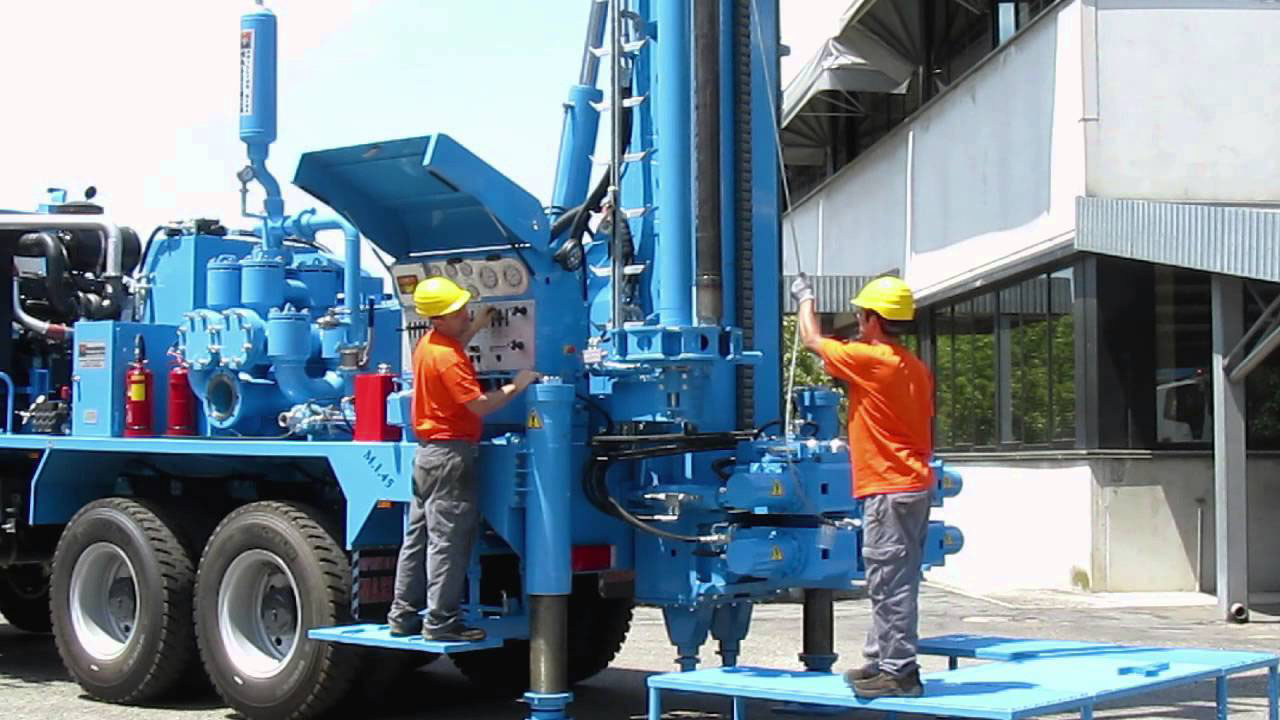Deep Water Well Drilling Cost: A Comprehensive Guide For Your Next Project
Ever wondered how much it costs to drill a deep water well? It's not just about digging a hole—it's an investment in your future water supply. Deep water well drilling cost can vary wildly depending on several factors, and understanding them is key to making an informed decision. Whether you're a homeowner, a farmer, or a business owner, having access to clean and reliable water is crucial. Let's dive into the nitty-gritty of what influences these costs and how you can plan accordingly.
Drilling a deep water well isn’t as simple as it sounds. It requires specialized equipment, skilled labor, and a lot of planning. The cost can range from a few thousand dollars to tens of thousands, depending on the depth, location, and geological conditions. If you're thinking about embarking on this journey, it's essential to know what you're getting into.
Throughout this guide, we'll break down the factors affecting deep water well drilling cost, provide insights into the average expenses, and offer tips to help you save money. So, whether you're in the early stages of planning or ready to take the plunge, this article has got you covered.
Read also:Britney Rodriguez Leak The Untold Story Behind The Viral Sensation
Table of Contents
- Introduction to Deep Water Well Drilling Cost
- Factors Influencing Deep Water Well Drilling Cost
- Average Deep Water Well Drilling Cost
- Impact of Geological Conditions on Cost
- How Location Affects Deep Water Well Drilling
- Permit and Regulatory Costs
- Cost of Equipment and Supplies
- Labor Costs in Deep Water Well Drilling
- Maintenance and Long-Term Costs
- Tips to Reduce Deep Water Well Drilling Cost
Introduction to Deep Water Well Drilling Cost
Deep water well drilling cost is one of those things that can catch you off guard if you're not prepared. It's not just about the depth of the well; there are so many other factors at play. From the type of soil to the equipment used, every little detail adds up. But hey, don't worry—we're here to break it all down for you.
Before we get into the specifics, let’s address the elephant in the room: why do you need a deep water well? Unlike shallow wells, deep water wells tap into groundwater sources that are less susceptible to contamination and drought. This makes them a more reliable option for long-term water supply. But with reliability comes a price tag that can vary significantly.
So, what exactly influences the cost? Stick around, and we'll spill all the tea on that.
Factors Influencing Deep Water Well Drilling Cost
Alright, let’s talk about the big players in the game. Several factors contribute to the overall cost of deep water well drilling. Here's a quick rundown:
- Depth: The deeper you go, the more it costs. Simple math, right?
- Geological Conditions: Hard rock vs. soft soil—it makes a huge difference.
- Location: Where you live plays a significant role in pricing.
- Equipment: High-tech machinery doesn’t come cheap.
- Labor: Skilled workers command higher wages.
Each of these factors can either hike up or bring down your total expenses. Let's dig deeper into each one in the sections below.
Average Deep Water Well Drilling Cost
Now, the moment you've been waiting for—the average cost. On average, deep water well drilling can cost anywhere between $15 to $30 per foot. But hold your horses, because this is just the starting point. Depending on the aforementioned factors, the price can soar much higher.
Read also:Abby Berner Nude Leak Debunking Myths And Understanding The Truth
For instance, if you're drilling in an area with hard bedrock, expect to pay on the higher end of the spectrum. Conversely, if the soil is soft and the water table is close to the surface, you might catch a break. Always get multiple quotes from reputable contractors to ensure you're getting a fair deal.
Breaking Down the Costs
To give you a clearer picture, here's a breakdown of the typical costs involved:
- Drilling: $15–$30 per foot
- Casing: $5–$10 per foot
- Pump Installation: $1,000–$3,000
- Permit Fees: $200–$500
As you can see, it's not just the drilling itself that racks up the bill. There are plenty of additional costs to consider.
Impact of Geological Conditions on Cost
Geology is like the wildcard in this game. The type of rock and soil beneath your property can drastically affect the drilling process and, consequently, the cost. If you're drilling through limestone or sandstone, it might be a breeze. But hit granite or shale, and you're in for a tougher ride.
Not only does hard rock slow down the drilling process, but it also requires more powerful equipment and skilled operators. This translates to higher labor costs and longer project timelines. On the flip side, softer soils can make the job easier and quicker, saving you both time and money.
How to Assess Your Site
Before you start drilling, it's a good idea to conduct a geological survey. This will give you a better understanding of what lies beneath your property and help you estimate the costs more accurately. Sure, it’s an extra expense upfront, but it could save you a ton of money in the long run.
How Location Affects Deep Water Well Drilling
Location, location, location—it’s not just a real estate mantra. Where you live can have a significant impact on the cost of deep water well drilling. Urban areas tend to have higher labor and equipment costs due to demand and accessibility issues. Rural areas, on the other hand, might have lower costs but could face challenges with permits and regulations.
Additionally, some regions have stricter environmental regulations that can add to the overall expense. For example, if you're drilling near a protected water source, you might need to comply with additional requirements, which can increase the cost.
Regional Differences
Here’s a quick look at how costs can vary by region:
- East Coast: $20–$35 per foot
- Midwest: $15–$25 per foot
- West Coast: $25–$40 per foot
As you can see, the cost can fluctuate quite a bit depending on where you are. Always factor in your location when budgeting for your project.
Permit and Regulatory Costs
Permits might seem like a minor detail, but they can add up quickly. Depending on your location, you might need to obtain various permits before starting the drilling process. These can include water rights permits, environmental permits, and zoning permits.
On average, permit fees can range from $200 to $500. However, in some areas, they can be much higher. It’s important to research the specific requirements in your region and factor them into your budget.
Why Permits Matter
Permits are not just a formality—they ensure that your well is drilled safely and in compliance with local regulations. Skipping this step can lead to hefty fines and legal issues down the road. So, do yourself a favor and take care of the paperwork upfront.
Cost of Equipment and Supplies
Equipment costs are another big chunk of the budget. From the drilling rig to the casing and pump, there’s a lot of gear involved. High-quality equipment is essential for a successful project, but it doesn’t come cheap.
For example, a standard drilling rig can cost anywhere from $50,000 to $200,000. While you won’t be buying one outright, renting or hiring a contractor with the right equipment can still be pricey. Additionally, you’ll need to factor in the cost of supplies like casing, screen, and grout.
Investing in Quality
While it might be tempting to go for the cheapest option, investing in quality equipment and supplies can save you money in the long run. A well-built well is less likely to require costly repairs or replacements in the future.
Labor Costs in Deep Water Well Drilling
Labor costs are another major expense. Skilled drillers and technicians don’t come cheap, and rightly so. They bring expertise and experience to the table, ensuring that your well is drilled safely and efficiently.
On average, labor costs can range from $50 to $100 per hour. The exact cost will depend on the complexity of the project and the experience level of the workers. Always ask for references and check reviews before hiring a contractor to ensure you’re getting quality work at a fair price.
Hiring the Right Team
When it comes to deep water well drilling, experience matters. Look for contractors with a proven track record and positive customer reviews. Don’t be afraid to ask questions and request references to ensure you’re hiring the right team for the job.
Maintenance and Long-Term Costs
Once your well is drilled, the costs don’t stop there. Maintenance and long-term expenses are important considerations. Regular maintenance can help prevent costly repairs and ensure that your well continues to function properly.
Some common maintenance tasks include pump inspections, water quality testing, and casing checks. These can add up over time, so it’s important to budget for them. Additionally, if you encounter issues like water contamination or equipment failure, you might face unexpected expenses.
Planning for the Future
To minimize long-term costs, establish a regular maintenance schedule and keep an eye out for any signs of trouble. Addressing small issues early on can prevent them from becoming bigger, more expensive problems later.
Tips to Reduce Deep Water Well Drilling Cost
Now that we’ve covered the costs, let’s talk about how you can save money. Here are a few tips to help you reduce the expense of deep water well drilling:
- Shop Around: Get multiple quotes from reputable contractors to ensure you’re getting a fair deal.
- Conduct a Geological Survey: Understanding your site’s geology can help you estimate costs more accurately.
- Negotiate: Don’t be afraid to negotiate with contractors to get the best price possible.
- Plan Ahead: Timing your project during the off-season can sometimes result in lower costs.
By following these tips, you can make the most of your budget without compromising on quality.
Final Thoughts
Deep water well drilling cost can seem daunting at first, but with the right information and planning, it’s a manageable expense. From understanding the factors that influence cost to finding ways to save money, this guide has equipped you with everything you need to know. So, whether you're ready to start drilling or just exploring your options, you're now armed with the knowledge to make informed decisions.
Got questions or comments? Drop them below, and let’s keep the conversation going. And if you found this article helpful, don’t forget to share it with your friends and family. Happy drilling!


